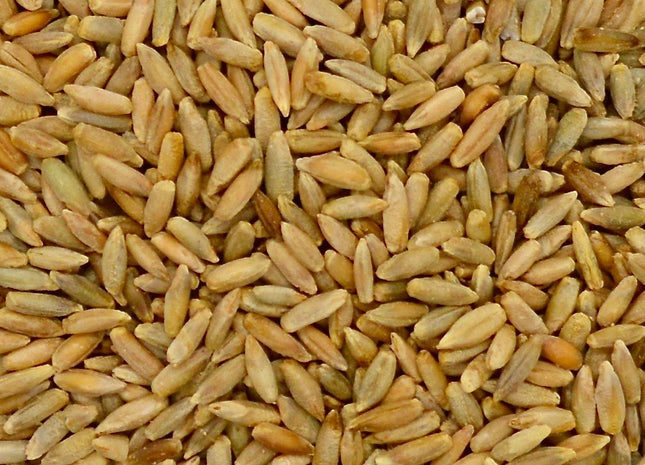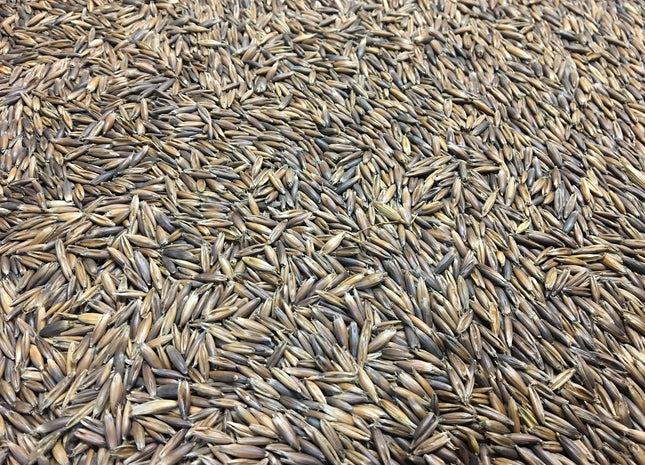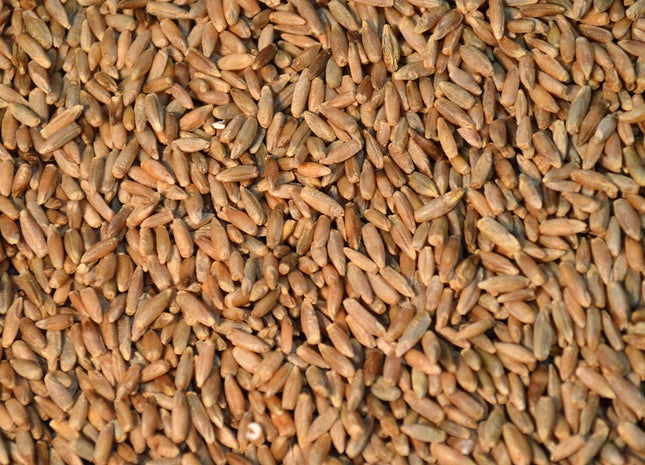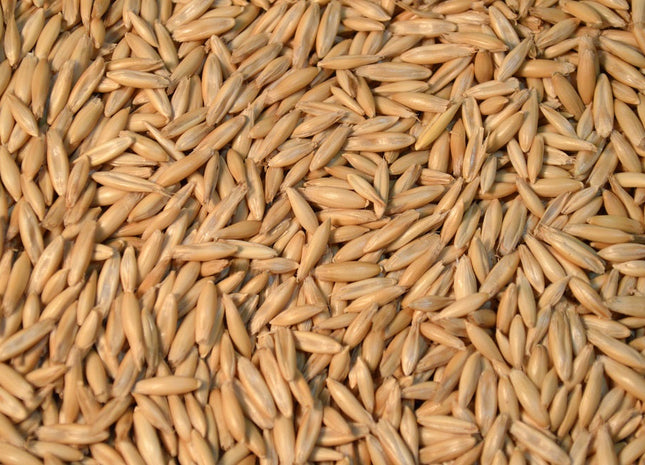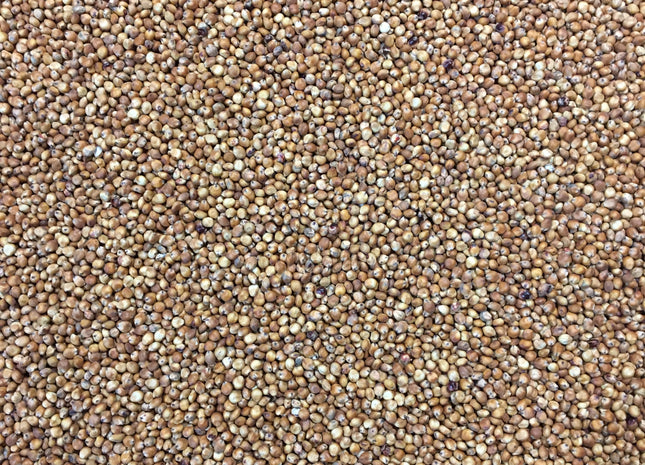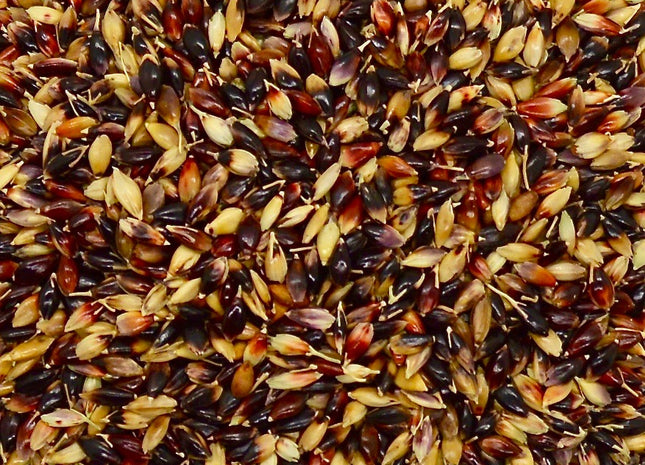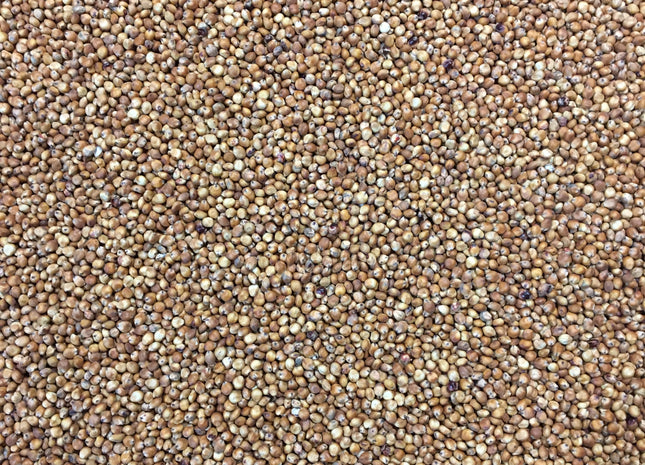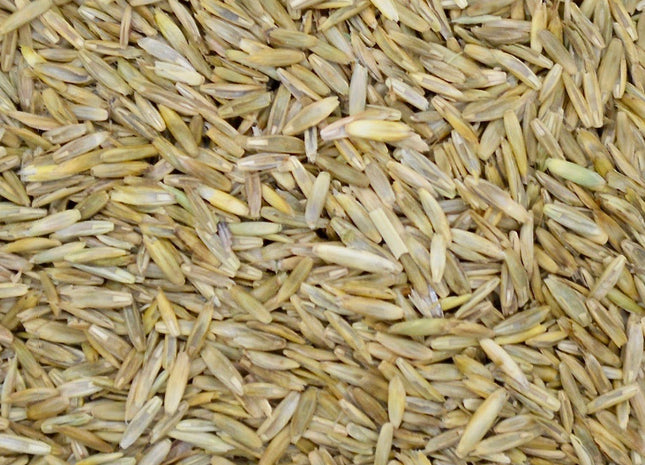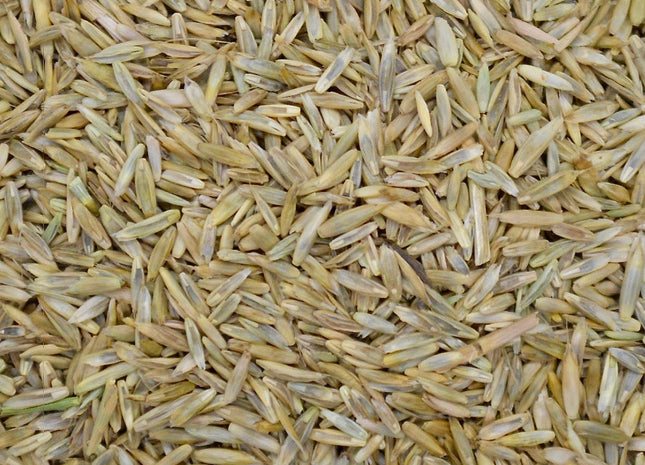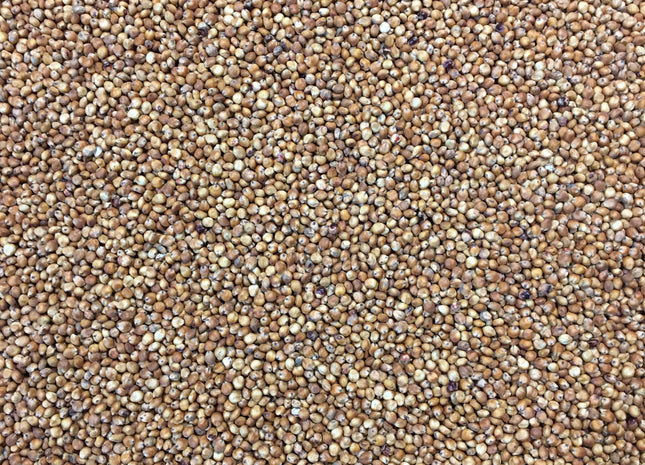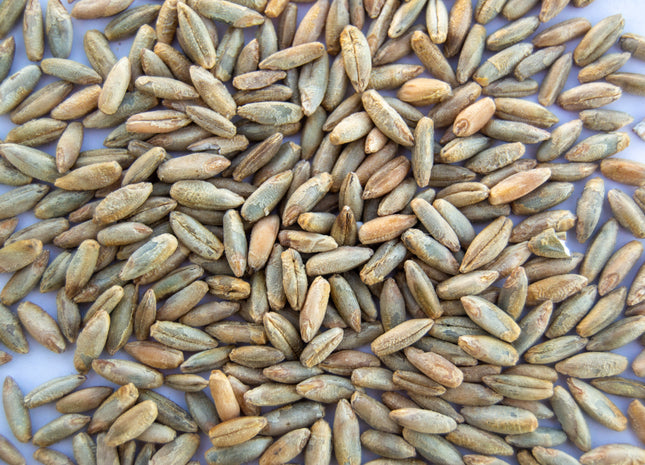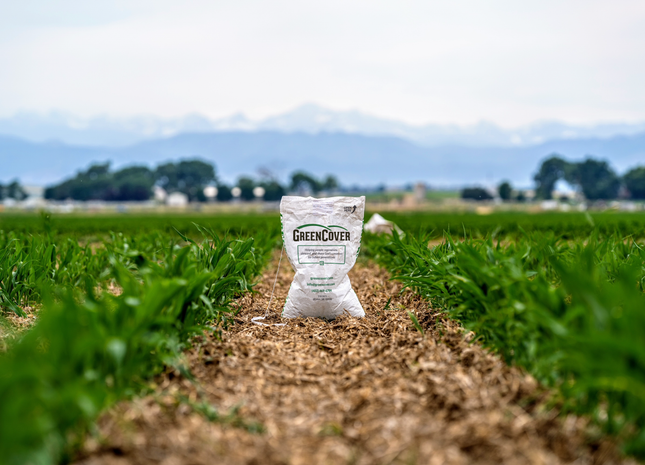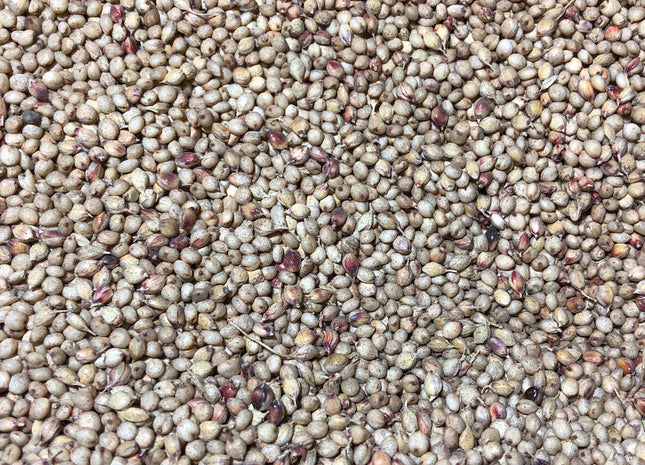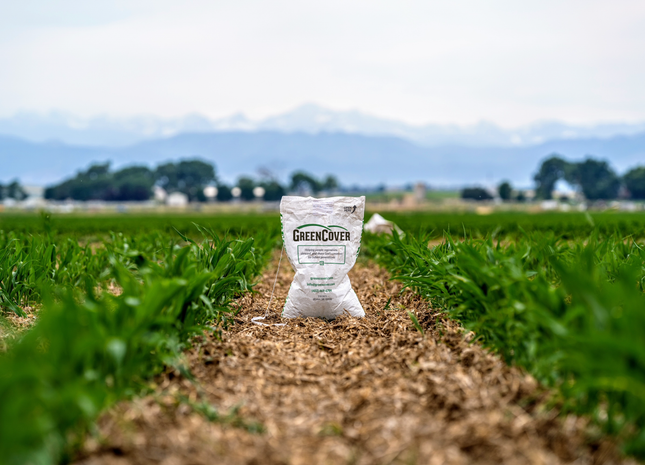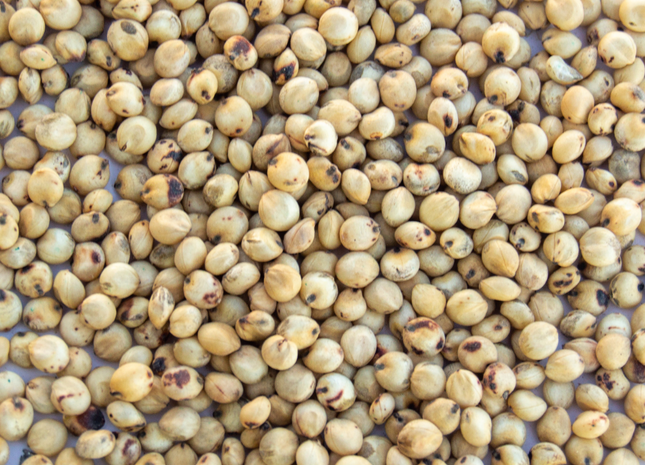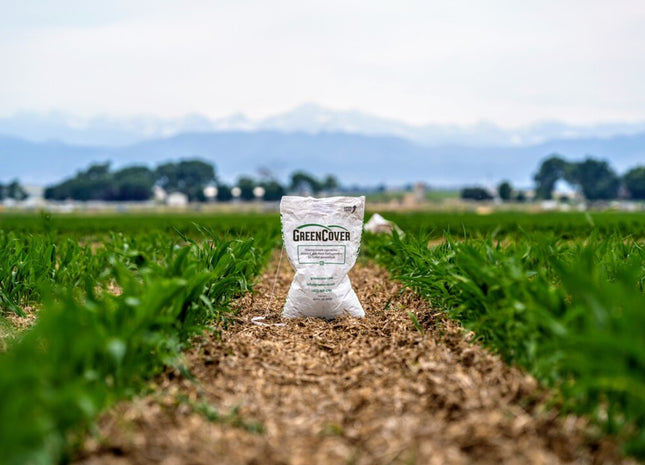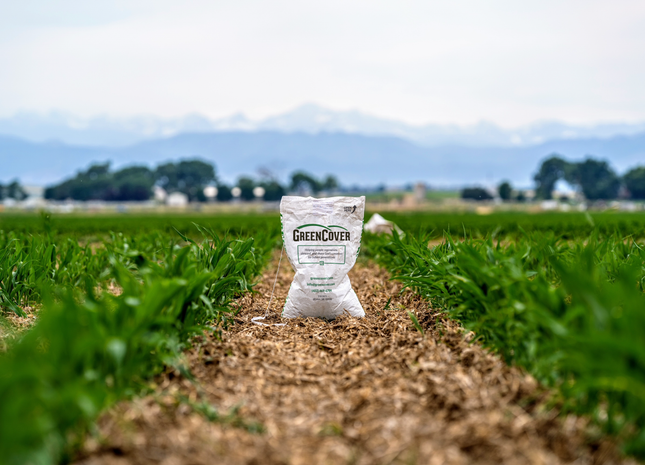Grasses

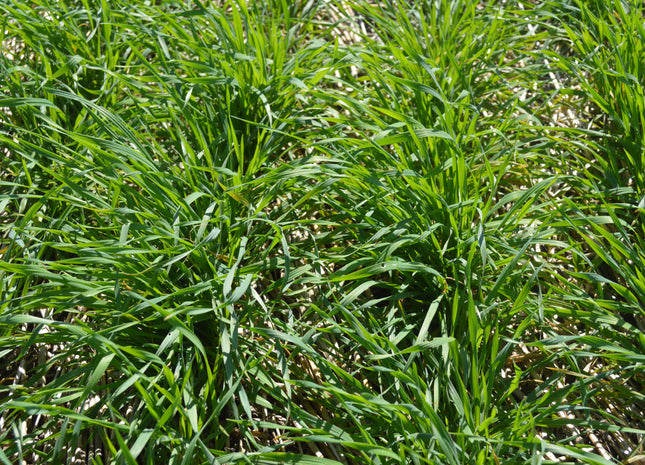
Cereal Rye (Elbon)
Cereal rye is probably the most commonly planted cover crop in the US. Known for its extensive root system, cold hardiness, grazeability, and nutrient cycling, rye is widely used in many cover crop situations. Its vast fibrous root system alleviates surface compaction and prevents erosion. Rye can germinate in temps as low as 34 degree F and will photosynthesize in temperatures as low as 38 degrees F making it super versatile for late fall /early winter plantings. Cereal rye is known for being the best cereal crop at retaining residual N. The vigorous spring growth has successful weed suppression through competition and allelopathic chemicals. It can also make an excellent forage crop. Rye can be terminated in the spring through the alternative methods of rolling, mowing, or crimping after boot stage. Rye will out yield any other cereal crops when planted in droughty, infertile, or sandy soils. Elbon was developed by the Noble Foundation in Oklahoma so it is best adapted to shorter, milder winters. For this reason Elbon will continue to grow later into the fall and will break dormancy earlier in the spring. This is ideal for growers hoping to terminate rye as early as possible in the spring. Elbon is not a great option for grain production.
from $0.24 per lb

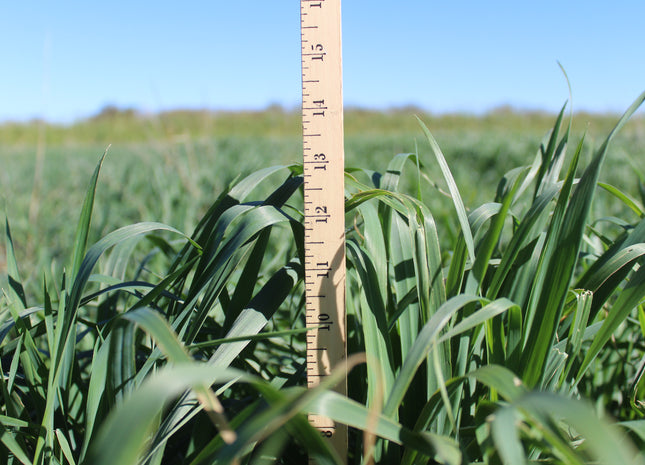
Black Oats (Cosaque)
Cosaque black oats offer several advantages over traditional oats, including superior nutritional value, digestibility, palatability, and a robust tillering capacity. They exhibit forage yields comparable to cereal rye and demonstrate good winter hardiness, often serving as a winter annual crop in southern regions. Notably, these oats thrive even in low-quality soils, contributing to soil restoration and enrichment due to their exceptional root system. A great fall grazing option across the U.S. and a great overwintering grass as you get south of Interstate-70. Oat roots are a host for mycorrhizal fungi and are a great addition to many cover crop mixes.
from $0.32 per lb

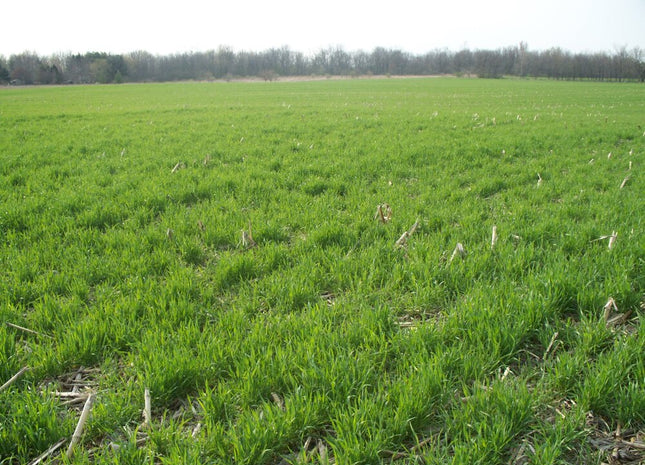
Cereal Rye (Hazlet)
Cereal rye is probably the most commonly planted cover crop in the US. Known for its extensive root system, cold hardiness, grazeability, and nutrient cycling, rye is widely used in many cover crop situations. Its vast fibrous root system alleviates surface compaction and prevents erosion. Rye can germinate in temps as low as 34 degree F and will photosynthesize in temperatures as low as 38 degrees F making it super versatile for late fall /early winter plantings. Cereal rye is known for being the best cereal crop at retaining residual N. The vigorous spring growth has successful weed suppression through competition and allelopathic chemicals. It can also make an excellent forage crop. Rye can be terminated in the spring through the alternative methods of rolling, mowing, or crimping after boot stage. Rye will out yield any other cereal crops when planted in droughty, infertile, or sandy soils. Hazlet cereal rye is a northern variety and will mature 7-10 days later than Elbon rye in the spring.
from $0.24 per lb

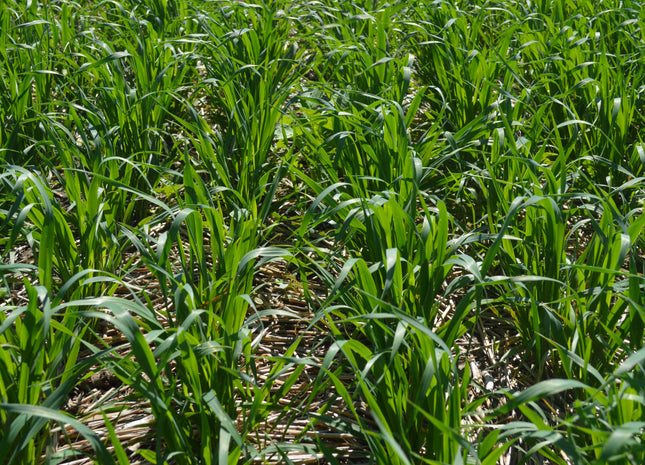
Spring Oats (Rushmore)
Spring oats are an excellent choice for quick ground cover in the spring or fall. Rapid growth aids in stabilizing disturbed or bare soil from environmental conditions. Spring oats make a great addition to any spring grazing or forage mix providing ample tonnage for your livestock. Oats can be easily chemically terminated and fall plantings commonly winterkill. Residue from oats suppress winter annuals and protect the soil throughout the winter and will decompose rapidly in the spring. Allelopathic chemicals released by the decomposing residue suppress weed germination for a few weeks. The high quality oat forage is more palatable than rye or wheat. Also, oat is less prone to insect problems than either wheat or barley. Oat roots are a host for mycorrhizal fungi and are a great addition to many cover crop mixes.
from $0.32 per lb

Sorghum Sudan (Super Cover)
Super Cover is an excellent sorghum sudan for anybody looking for a high carbon, warm season grass to help prevent erosion, build soil, and even catch snow if left through the winter.
from $1.10 per lb

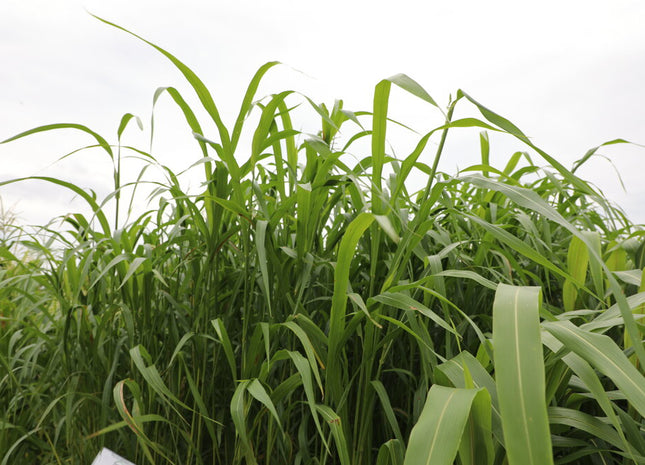
Sudangrass (Piper)
Sudangrass is a super fast growing, fine stemmed, warm season annual grass. If summer weed suppression is your goal, this would be one of the best species to accomplish that. Sudangrass offers excellent regrowth capabilities making it a great addition to summer grazing mixes where regrowth is important. Sudangrass is commonly crossed with sorghum to make sorghum-sudan which takes the fast, tall growing, fine stemmed traits of sudangrass and combines it with the wider leaf and oftentimes higher forage quality of sorghum. Sudangrass contains low amounts of prussic acid
from $1.41 per lb

Sorghum Sudan (Endurance Aphid Tolerant BMR Dwarf)
Endurance Aphid Tolerant BMR Dwarf sorghum sudan is bred for short stature and high digestibility. Don't mistake shorter stature for less biomass, though. The dwarf trait simply shortens the length in between the leaves, called the internode length, while still growing the same number of leaves. The shorter plant makes it easier for livestock to graze and utilize efficiently.
from $1.65 per lb

Annual Ryegrass (Ranahan) - Tetraploid
Annual ryegrass stands out as a captivating and remarkable grass within the realm of cover crops. It offers a plethora of advantages, including winter grazing, impressive yields, and an often underrated impact on breaking through compacted soils. Notably, tetraploid ryegrass boasts rapid establishment, extended and broader leaves, but that comes with a reduced cold tolerance when compared to diploid annual ryegrass.
from $1.00 per lb

Annual Ryegrass (Centurion) - Diploid
Extending the grazing season while protecting and building the soil is a great benefit of annual ryegrass. The biomass nitrogen content can range from 1.3-2.4% and varies depending on the amount of residual nitrogen left from the previous crop. Ryegrass can be very successfully broadcast into established row crops. Winter killed ryegrass can still provide weed suppression, soil protection and trap residual N until spring. Ryegrass attracts very few pest insects that could pester the next crop. With lower needed seeding rates per acre you will spend less on freight and your applicator can remain in the drill or in the air longer. Annual ryegrass has deep roots, but when considering it for more northern areas, it must be established prior to hard freezing in order to have the best chance of winter survival. The diploid varieties are best suited for colder environments and tolerate harder grazing compared to tetraploid varieties.
from $1.00 per lb

Sorghum Sudan (SolarMaxx PPS)
SolarMaxx is a photoperiod sensitive sorghum sudangrass designed to be used in both diverse cover crop mixes as well as for forage production. The photoperiod sensitivity is an increased benefit to anyone who wants to have a full season plant with multi harvest possibilities. Photoperiod sensitivity means that the plant will not go reproductive until the daytime hours get to 12 hours and 20 minutes. The flexibility of these genetics gives the producer time to either react to making a harvest, or allow time for moisture to come and allow the plant to grow again. Since seedhead emergence is so late the threat of volunteer seed is little to none.
from $1.45 per lb

Organic Cereal Rye (Cardinal)
Notice: This product may NOT be used for grain production, seed production, or mechanically harvested forage. Cereal Rye has an excellent fibrous root system that alleviates surface compaction. Rye can be successful planted later then almost any other cover crop due to its low germination and growth temperature requirements. Cereal rye is known for being the best cereal crop at retaining residual N. It's typical for a fall planted cereal rye crop to scavenge on average 25 to 50 lbs of N, with cases scavenging in excess of 100 lbs of N. The vigorous spring growth has successful weed suppression through competition and allelopathic chemicals. Rye can be terminated in the spring through the alternative methods of rolling, mowing, or crimping after boot stage. Rye will out yield any other cereal crops when planted in droughty, infertile, or sandy soils.
from $0.36 per lb

Sorghum Sudan (Cattle Cover BMR MS)
Cattle Cover offers game-changing combination of agronomics and yield. High digestibility, great palatability, and strong disease package for overall good producibility. First-in-class sugarcane aphid tolerance. Agronomics and maturity makes it a strong hybrid for hay production and grazing. Being a male sterile it can be used where you do not want the possibility of volunteering.
from $1.60 per lb

Forage Sorghum (Sweet Cane Max MS)
Sweet Cane Max is a medium maturity, male sterile, forage sorghum. This hybrid fits well in high-quality forage production or grazing operations. It has superior standability when compared to other hybrids. Sweet Cane should be used in single cutting/grazing or winter grazing scenarios. When drying conditions are favorable it can be used for hay. Usually it is cut once the plant has headed out for highest sugar content or used for winter stockpile grazing. Sweet Cane will not produce grain unless pollinated with other sorghums, so isolation is recommended to protect sterility.
from $1.20 per lb

Cereal Rye (Cardinal)
Notice: This product may NOT be used for grain production, seed production, or mechanically harvested forage. Cereal rye is probably the most commonly planted cover crop in the US. Known for its extensive root system, cold hardiness, grazeability, and nutrient cycling, rye is widely used in many cover crop situations. Its vast fibrous root system alleviates surface compaction and prevents erosion. Rye can germinate in temps as low as 34 degree F and will photosynthesize in temperatures as low as 38 degrees F making it super versatile for late fall /early winter plantings. Cereal rye is known for being the best cereal crop at retaining residual N. The vigorous spring growth has successful weed suppression through competition and allelopathic chemicals. It can also make an excellent forage crop. Rye can be terminated in the spring through the alternative methods of rolling, mowing, or crimping after boot stage. Rye will out yield any other cereal crops when planted in droughty, infertile, or sandy soils.
from $0.29 per lb


Organic Jerry Spring Oats
Note: This product is certified organic. Spring oats are an excellent choice for quick ground cover in the spring or fall. Rapid growth aids in stabilizing disturbed or bare soil from environmental conditions. Spring oats make a great addition to any spring grazing or forage mix providing ample tonnage for your livestock. Fall plantings commonly winterkill. Residue from oats suppress winter annuals and protect the soil throughout the winter and will decompose rapidly in the spring. Allelopathic chemicals released by the decomposing residue suppress weed germination for a few weeks. The high quality oat forage is more palatable than rye or wheat. Also, oat is less prone to insect problems than either wheat or barley.
from $0.45 per lb
- Out of Stock

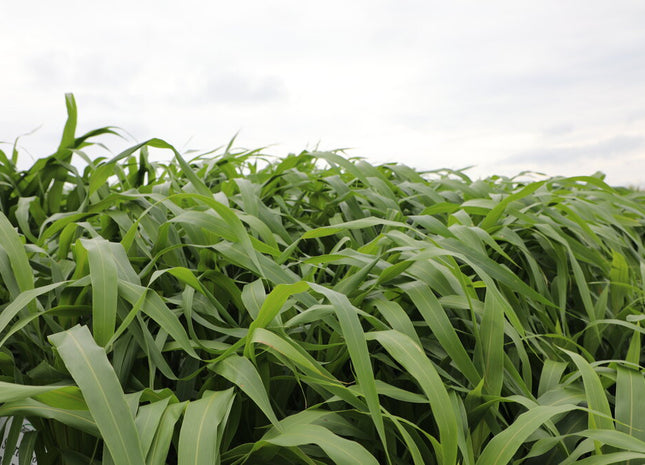
Sorghum Sudan (Short King BMR Dwarf PPS)
Short King BMR Dwarf PPS Hybrid Sorghum Sudan is an excellent option for people south of I-70 and in dry climates due to its superior drought tolerance and aphid resistance. This sorghum sudan can be used for hay production or grazing. It will maintain dwarf stature until the photoperiod sensitivity is triggered, usually mid-September.
from $1.75 per lb

Spring Oats (Everleaf Falcon) - Certified
Everleaf Falcon spring oats are an improved variety of oats. Delayed heading and improved leaf density make this an excellent option for forage. These oats resist lodging, produce excellent tonnage, and provide high quality forage. The seeds are much darker than most oat varieties, maturing as a medium to dark brown seed. Everleaf Falcon oats should be used for grazing or any type of harvested forage.
from $0.35 per lb
- Out of Stock


Organic Elbon Cereal Rye
Note: This product is certified organic. Cereal rye is probably the most commonly planted cover crop in the US. Known for its extensive root system, cold hardiness, grazeability, and nutrient cycling, rye is widely used in many cover crop situations. Its vast fibrous root system alleviates surface compaction and prevents erosion. Rye can germinate in temps as low as 34 degree F and will photosynthesize in temperatures as low as 38 degrees F making it super versatile for late fall /early winter plantings. Cereal rye is known for being the best cereal crop at retaining residual N. The vigorous spring growth has successful weed suppression through competition and allelopathic chemicals. It can also make an excellent forage crop. Rye can be terminated in the spring through the alternative methods of rolling, mowing, or crimping after boot stage. Rye will out yield any other cereal crops when planted in droughty, infertile, or sandy soils. Elbon was developed by the Noble Foundation in Oklahoma so it is best adapted to shorter, milder winters. For this reason Elbon will continue to grow later into the fall and will break dormancy earlier in the spring. This is ideal for growers hoping to terminate rye as early as possible in the spring. Elbon is not a great option for grain production.
from $0.37 per lb

Sorghum Sudan (506x51 BMR Dwarf)
506x51 is a brachytic dwarf BMR sorghum sudangrass with a longer maturity than standard sorghum sudan hybrids. 506x51 has high tillering capacity genetics that will help with filling in row spaces when planting at wider rows. This is also a benefit when grazing, as once the plant is consumed the plant will stool. The delayed maturity benefit to this variety also pairs it nicely with longer season cover mixes that could be stockpiled. The leaf to stem ratio is very attractive for a hay harvest as well.
from $1.55 per lb

Sorghum Sudan (Good Grazy BMR PPS)
This photoperiod sensitve sorghum sudan is an excellent option for many multi-cut grazing and haying situations. The BMR trait lends itself to excellent digestibility. Use this product in mixes are by itself. The PPS trait ensures that the sorghum sudan will not head out until mid-September.
from $1.75 per lb


Organic Rushmore Spring Oats (Certified)
Note: This product is certified organic. Spring oats are an excellent choice for quick ground cover in the spring or fall. Rapid growth aids in stabilizing disturbed or bare soil from environmental conditions. Spring oats make a great addition to any spring grazing or forage mix providing ample tonnage for your livestock. Oats can be easily chemically terminated and fall plantings commonly winterkill. Residue from oats suppress winter annuals and protect the soil throughout the winter and will decompose rapidly in the spring. Allelopathic chemicals released by the decomposing residue suppress weed germination for a few weeks. The high quality oat forage is more palatable than rye or wheat. Also, oat is less prone to insect problems than either wheat or barley.
from $0.50 per lb
- Out of Stock


Organic Hazlet Cereal Rye
Note: This product is certified organic. Cereal rye is probably the most commonly planted cover crop in the US. Known for its extensive root system, cold hardiness, grazeability, and nutrient cycling, rye is widely used in many cover crop situations. Its vast fibrous root system alleviates surface compaction and prevents erosion. Rye can germinate in temps as low as 34 degree F and will photosynthesize in temperatures as low as 38 degrees F making it super versatile for late fall /early winter plantings. Cereal rye is known for being the best cereal crop at retaining residual N. The vigorous spring growth has successful weed suppression through competition and allelopathic chemicals. It can also make an excellent forage crop. Rye can be terminated in the spring through the alternative methods of rolling, mowing, or crimping after boot stage. Rye will out yield any other cereal crops when planted in droughty, infertile, or sandy soils. Hazlet cereal rye is a northern variety and will mature 7-10 days later than Elbon rye in the spring.
from $0.36 per lb

Forage Sorghum (Sorgrow D120 BMR Brachytic Dwarf)
This Brachytic Dwarf Forage Sorghum brings a jump in yield potential. Excellent standability, top-notch quality feed and now featuring our Aphix SCA tolerance. This is a benchmark of all high-yielding forage sorghum products in the lineup. If you need a product to push the limits of yield and provide superb agronomics, this is the one to try.
from $2.30 per lb

